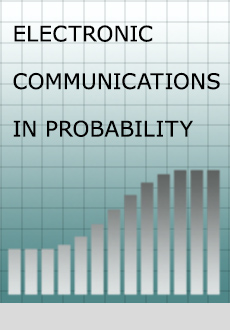Abstract
Let $X$, $Y$ be continuous-time martingales taking values in a separable Hilbert space $\mathcal{H}$.
(i) Assume that $X$, $Y$ satisfy the condition $[X,X]_t\geq [Y,Y]_t$ for all $t\geq 0$. We prove the sharp inequalities $$ \sup_t||Y_t||_p\leq (p-1)^{-1}\sup_t||X_t||_p,\qquad 1 < p\leq 2,$$ $$ \mathbb{P}(\sup_t|Y_t|\geq 1)\leq \frac{2}{\Gamma(p+1)}\sup_t||X_t||_p^p,\qquad 1\leq p\leq 2,$$ and for any $K>0$ we determine the optimal constant $L=L(K)$ depending only on $K$ such that $$ \sup_t ||Y_t||_1\leq K\sup_t\mathbb{E}|X_t|\log|X_t|+L(K).$$
(ii) Assume that $X$, $Y$ satisfy the condition $[X,X]_\infty-[X,X]_{t-}\geq [Y,Y]_\infty-[Y,Y]_{t-}$ for all $t\geq 0$. We establish the sharp bounds $$ \sup_t||Y_t||_p\leq (p-1)\sup_t||X_t||_p,\qquad 2\leq p < \infty$$ and $$ \mathbb{P}(\sup_t|Y_t|\geq 1)\leq \frac{p^{p-1}}{2}\sup_t||X_t||_p^p,\qquad 2\leq p < \infty.$$
This generalizes the previous results of Burkholder, Suh and the author, who showed the above estimates under the more restrictive assumption of differential subordination. The proof is based on Burkholder's technique and integration method.
Citation
Adam Osekowski. "On relaxing the assumption of differential subordination in some martingale inequalities." Electron. Commun. Probab. 16 9 - 21, 2011. https://doi.org/10.1214/ECP.v16-1593
Information





